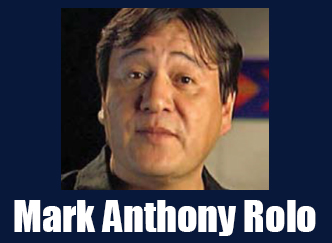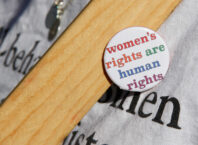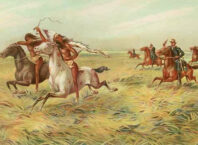Creating New Native Identities
A few years ago, my friend, a PhD candidate was analyzing research data she had collected on how social media, in particular, Facebook was shaping the identities of today’s Native American youth. Like most of the younger generation, social media is central to shaping personal identity. Facebook gives youth control over how they are perceived by their friends and onlookers. Creating one’s own identity apart from family, social and economic class, gender, sexual preference and race is of course, wildly attractive to this generation. Native youth are just as hooked as their non-Native peers on exploiting the ideal of identity creation.
What struck me as most fascinating in my friend’s research on Native youth and social media was the ease, probably freedom, these young people have in self expression. No doubt, the autonomy, the smokes and mirrors of Facebook make the internet world a very safe place to have the world see you how you want to be seen.
Whether it is in using pseudonyms, Adobe-shopped style selfies or limiting personal information, Native youth, it seems to me, have become more individualistic and bold about their identities and beliefs.
For many Native youth the appeal of Facebook is the unique power to be real while hiding beneath a mask. For many Native youth and other youth of color and oppressed classes, social media has opened new forms of expressing personal voice on a public platform. Raising their voice on political issues that threaten Native communities, sharing adventures of trailing the summer powwow circuit or railing against Indian sports mascots, never before have Native youth been so outspoken on issues that used to teach our people that it was best to just be silent.
Silence, many Native Americans say, has been key to our survival through the generations of genocide, boarding schools and other U.S. government forms of obliteration or assimilation. Not that today’s Native youth do not suffer from historical trauma. They do. Our youth top the charts when it comes to suicide nationwide. Sexual violence remains rampant and drug use is on the rise among our youth in nearly every Native community. But what sets this generation apart is the brazenness to break the silence, to forge a newer identity of Native pride and passion that I believe, no other generation – save the followers of the American Indian Movement – has embraced.
Naturally, there is a dark side to social media. Native gangs have used Facebook to brag about twisted notions of tribalness. Even some Native youth have used social media to propagate hateful manifestos. And our generation is certainly not immune from cyber bullying.
But deviant behavior and beliefs aside, the majority of our youth are achieving their positive goals of cultural and racial identity. And they are doing it with support. This larger generation, researchers tell us, is more tolerant than any in American history. They are sick and tired of racism, homophobia and other forms of hate that have plagued humankind since the start of our existence. Acceptance is the rule of the day in this generation’s world. Non-Native youth stand by their Indian peers in their efforts to declare that yes, the history of mistreatment of the Indian continues today.
And yet, one has to ask, what does this Native generation’s gains mean to the larger view of Native American identity? We know that Natives marry outside the race more than any other group in this country. We know that in the not so distant future our blood as a people will shrink to the point of extinction. Already, tribes across Indian Country are eliminating blood quantum levels as a measure for tribal enrollment and instead, favoring ancestry just to maintain the population.
Can we count on future generations of Indian people to carry on the traditions and values of our ancestors, our ceremonies and Earth knowledge that has been preserved for centuries? I could never answer that question. All I can observe is that we, as a people, have suffered through the worst of times. We are still here. Hopefully, this generation will carry us through and continue to remind us that yes, Native lives matter.







